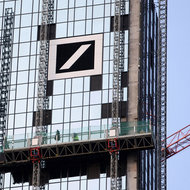Sixty factory managers from the South arrived in the Kaesong Industrial Zone, the factory park located in the North Korean border town of the same name, for a day trip to check on their factories idled since the last of them withdrew from there in late April. North Korea halted production there in early April by withdrawing all its 53,000 workers, blaming tensions it said were caused by joint American-South Korean military drills at the time.
The factory managers inspected their manufacturing equipment ahead of the possible resumption of operations. Another batch of South Korean factory mangers planned to make a similar trip to Kaesong on Thursday.
Representatives of the two Korean governments had met on the border over the weekend and agreed upon the factory managers’ trips to Kaesong, but they remained far apart over the terms of reopening the complex. The two sides resumed negotiarltions on Wednesday in Kaesong but again failed to reach a compromise. They planned to meet again on Monday.
Suh Ho, the chief South Korean negotiator, said on Wednesday that North Korea must accept “common sense and international standards” in Kaesong before the complex can be “normalized and further developed.”
South Korea is urging North Korea to take steps to assure that it will not let political and military disputes interfere again with the operation of the joint economic project in Kaesong. Its president, Park Geun-hye, has suggested that one such step would be for North Korea to agree to invite non-Korean factories to Kaesong.
She said in March that “if the Kaesong complex becomes internationalized with foreign factories, North Korea will not be able to do things intolerable under international standards, such as an abrupt travel ban or a sudden tax increase,” actions that she said South Korean firms had suffered there.
Before shutting down Kaesong in April, North Korea had demanded higher wages for its workers and more taxes for South Korean firms there. It also had complained that South Korea’s investments there fell far short of what it had promised when the two Koreas started the joint project a decade ago. But it has opposed inviting foreign investors there, calling such a plan “a criminal plot” to help spread capitalist influence to undermine its socialist political system.
The chief North Korean negotiator, Pak Chol-su, is pressing South Korea to agree to an early resumption of work at the factory complex, citing fears among factory owners that if their plants were not restarted soon, their equipment would soon start deteriorating in the monsoon season.
“It’s raining a lot, and I am worried about the factory facilities,” he was quoted as saying in South Korean pool reports from Kaesong.
During talks on Wednesday, the two Koreas were expected to bicker over the estimated 700 billion won, or about $600 million, in damages that the three-month suspension of operations has caused to 123 South Korean factories in Kaesong.
The South Korean factory managers’ return to Kaesong and the continuing governmental talks were a sign that the two Koreas are easing tensions and edging toward a possible thaw after months of hostile exchanges, which reached a peak when the North threatened to attack the South with nuclear weapons and the South responded with warnings of counterattacks.
The Kaesong complex, where textile and electronic parts companies from the South employed low-cost North Korean workers, started producing goods in late 2004. It is the last remaining toehold for South Korea’s efforts from a previous era to use economic cooperation to help the North open up and move eventually toward the reunification of the peninsula.
But some hard-line conservatives in South Korea have demanded that the government shut the factory park for good. They argue that most of the between $80 million to $90 million paid annually as wages for North Korean workers ended up in the coffers of the North Korean regime, which was building nuclear weapons and running prison gulags.
When it pulled its workers from Kaesong in April, North Korea also blamed United Nations sanctions against its nuclear tests, as well as the joint American-South Korean military drills. It also demanded that South Korea apologize for domestic news media reports that it said insulted its young leader, Kim Jong-un. Those reports quoted commentators as saying that Mr. Kim would not shut Kaesong down because it was an important source of cash for his government.
The move to try to reopen Kaesong is welcome news for some South Korean liberals. They believe that engagement will work better to persuade North Korea to change and give up its nuclear weapons than sanctions and diplomatic pressure.
But Ms. Park’s conservative South Korean government insists that it has no intention of cooperating with the North unless it first changes its provocative behavior. And surveys show that her attitude remains popular among South Koreans after months of bellicose rhetoric from the North.
“We cannot go back to the old ways,” said Kim Hyung-suk, a South Korean government spokesman, about Kaesong.

Article source: http://www.nytimes.com/2013/07/11/world/asia/south-korean-managers-return-to-shuttered-plant-in-north.html?partner=rss&emc=rss
